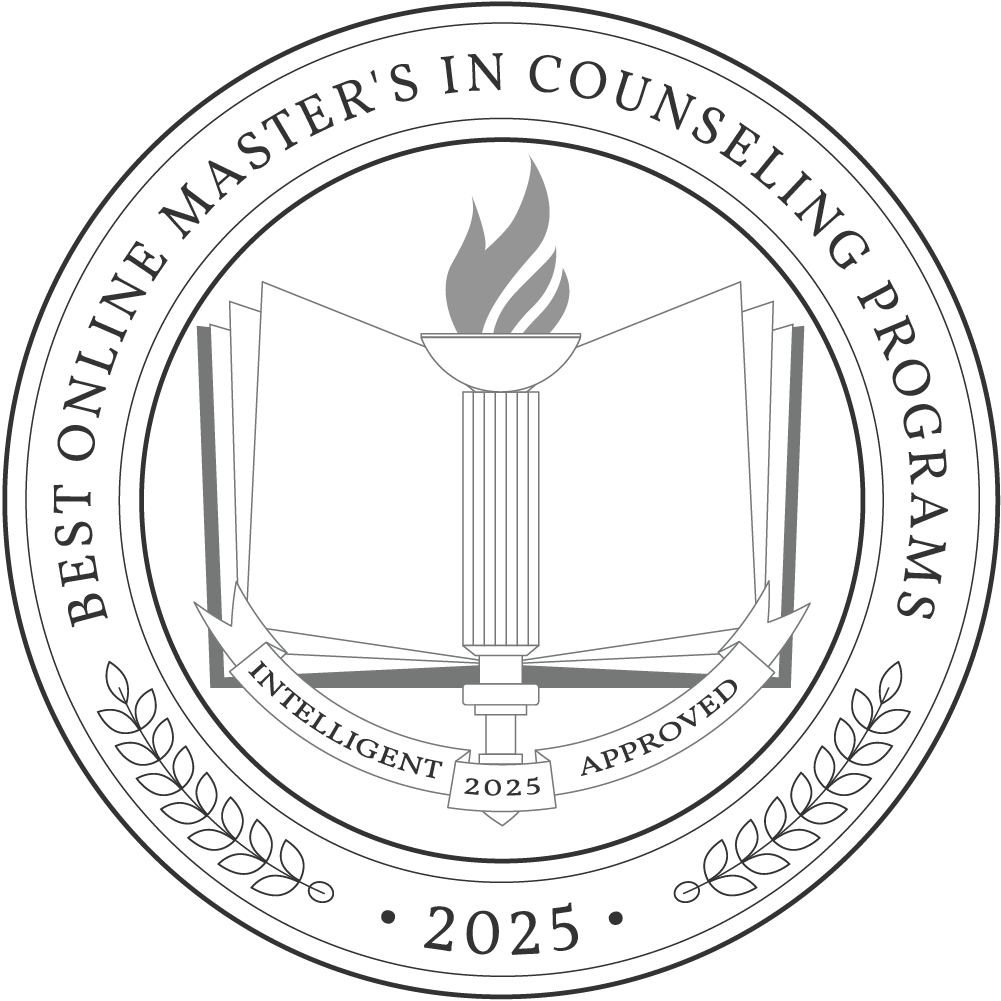Counselors help adults, adolescents, and children cope with various mental health, behavioral, and social challenges by providing clinically-informed supportive care in a safe environment. While counseling-related jobs are available to individuals at all educational levels, a master’s in counseling is required for licensure and certification, which increases employment opportunities.
According to the Bureau of Labor Statistics (BLS), counseling and social services employment is expected to grow faster through 2032. Over the next decade, there will be roughly 42,000 job openings for substance abuse, behavioral disorder, and mental health counselors. The median annual wage for this field is $53,710, although top earners can make more than $89,920 annually.
With abundant online master’s in counseling programs, selecting the right one for you can be challenging. Intelligent.com evaluated dozens of programs to create this list of the best online master’s in counseling programs. Students can also find further information to help them search, including insight from UC-Irvine program coordinator and counselor Blanca Villagomez on what to expect from an online master’s in counseling program and how to choose the program that’s best for them.
What Can I Expect from an Online Master’s in Counseling Program?
Counseling is one of many distinct but related fields dedicated to helping individuals, families, couples, and other groups cope with mental and behavioral health challenges. Counselors typically provide brief, targeted treatment for a specific issue or concern. This focus is different from psychotherapy, which helps patients through long-term therapies. It also differs from social work, which addresses these issues from a group or community perspective.
At the graduate level, there are different kinds of degrees available, including a Master of Arts (MA), Master of Science (MS), and Master of Education (M.Ed). Each degree has a different pedagogical and theoretical approach. For example, an M.Ed in Counseling will focus on counseling in an education-related context, while an MS will have an evidence-based, scientific approach to counseling methods.
The specific type of degree a student earns is less important than ensuring the program meets all the educational and experiential requirements for professional licensure. Many jobs are only available to licensed counselors, and it’s also a requirement for those who want to open a private practice.
Individual states set their own licensure requirements and procedures. Most want students to have completed coursework in core areas like group counseling, social and cultural foundations, professional ethics, and human development. Students must also complete supervised clinical experiences to earn their counseling degree. Even if all the coursework in an online master’s in counseling program can be completed virtually, students will likely have to participate in an in-person clinical internship, which is something to keep in mind when considering programs.
One way for students to confirm that their program meets licensure standards is to check that it’s accredited by the Council for the Accreditation of Counseling and Related Educational Programs (CACREP). Accredited master’s in counseling programs typically require a minimum of 60 credits, which can be completed in 2-3 years of full-time study.
Students may also choose a specialization within the counseling field. Common concentrations include:
- Substance abuse counseling
- School and career counseling
- LGBTQIA+ counseling
- Christian counseling
Potential courses you’ll take in an online master’s in counseling program
- Multicultural Counseling: Explores the theory and practice of counseling culturally diverse clients, including African Americans, Asian Americans, American Indians and Hispanics.
- Group Counseling: Reviews theoretical positions, including client-centered, behavioral, and rational-emotive, and examines aspects of the group process, including group leadership, membership, and establishing and maintaining a group.
- Strategies for Clinical Assessment in Counseling: Explores the meaning and importance of assessment in the counseling process and teaches students how to identify, interpret, and explain assessments in clinical, college, and school counseling settings.
- Career Counseling and Development: Introduces students to the knowledge and skills needed to provide professional career counseling to individuals and design, implement and evaluate career development programs for particular groups.
Next, we compared this comprehensive list of online PhD programs to a list of aggregated college rankings from reputable publications like the U.S. News & World Report among others to simplify a student’s college search. We pored through these rankings so students don’t have to.
Online Master’s in Counseling Programs That Might Interest You
Learn about start dates, transferring credits, availability of financial aid, and more by contacting the universities below.
Why Trust Us
The Intelligent.com Higher Education Team is dedicated to providing students with independent, equitable school and program rankings and well-researched resources. Our expert-driven articles cover topics related to online colleges and programs, paying for school, and career outlooks. We use data from the U.S. Department of Education’s College Scorecard, the National Center for Education Statistics, and other reputable educational and professional organizations. Our academic advisory team reviews content and verifies accuracy throughout the year for the most current information. Partnerships do not influence rankings or editorial decisions.
- Analyzed over 2,000 national, accredited, and nonprofit colleges and universities
- 800+ rankings pages are reviewed and updated yearly
- Content is informed by reputable sources, surveys, and interviews with academic advisors and other experts
- Over 100 data points are reviewed for accuracy and quality throughout the year, including sources
How we rank schools
Our list features the best online Master’s in Counseling degree programs at top colleges nationwide. Each school featured is a nonprofit, accredited institution — either public or private — with a high standard of academic quality for post-secondary institutions.
We evaluated each school’s program on tuition costs, admission, retention and graduation rates, faculty, reputation, and the student resources provided for online students. We collected data from trusted sources like the National Center for Education Statistics, individual school and program websites, school admissions counselors, and other data sources. Then, we calculated the Intelligent Score on a scale of 0 to 100 based on the following criterion:
Academic Quality:
- Admission rate versus enrollment rate
- Retention rate of students who return after year one
- Accreditation status (regional and programmatic)
- Nonprofit status, both private and public institutions
Graduation Rate
- Overall graduation rate
- Total number of currently enrolled students, including diversity metrics
- Student-to-faculty ratio
Cost and ROI
- In-state and out-of-state per-credit tuition rates and fees
- Required credits to graduate
- Earning potential after graduation
- Availability of federal student loans, scholarships, and other financial aid options
Student Resources
- Available student services for online-only and hybrid programs
- On-campus amenities like tutoring centers and the number of libraries
Read more about our ranking methodology.
Best 49 Online Master’s in Counseling Programs to Consider
FiltersInstitution Type
Status
- Intelligent Score
- Alphabetically By University Name
- Acceptance Rate
- Enrollment
- In-state Graduate Tuition
- Out-of-state Graduate Tuition
- In-state Undergraduate Tuition
- Out-of-state Undergraduate Tuition

Northwestern University
Intelligent Score: 99.97In-state: $58,227
Out-of-state: $58,227
In-state: $56,067
Out-of-state: $56,067
SAT: 1430-1550
ACT: 33-35
$1,916
Online
Council for Accreditation of Counseling and Related Educational Programs
64
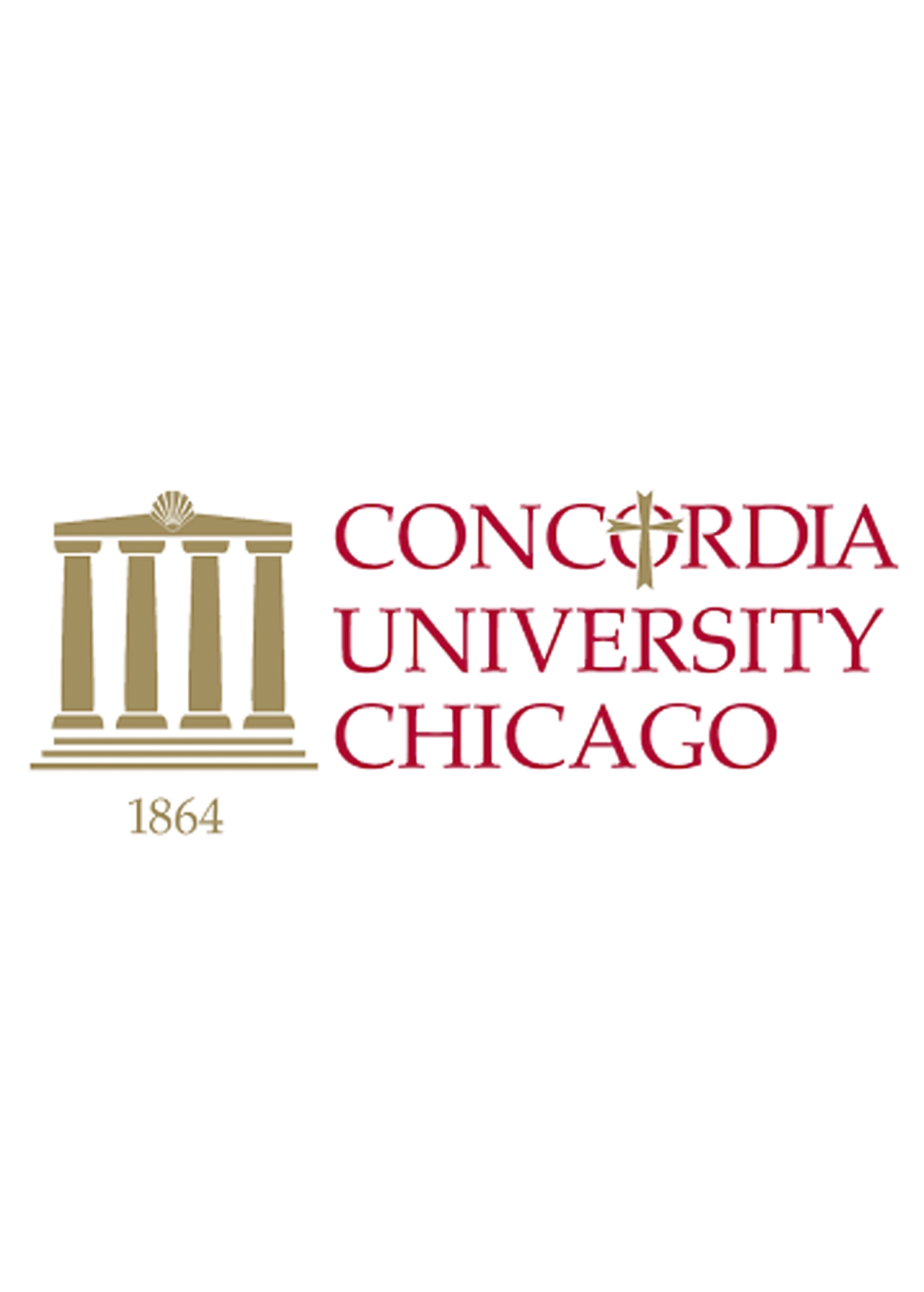
Concordia University Irvine
Intelligent Score: 99.38In-state: $32,660
Out-of-state: $32,660
In-state: $9,090
Out-of-state: $9,090
SAT: 990-1180
ACT: 19-25
$695
Online
Council for Accreditation of Counseling and Related Educational Programs
60

Wake Forest University
Intelligent Score: 99.35In-state: $56,722
Out-of-state: $56,722
In-state: $38,650
Out-of-state: $38,650
SAT: N/A
ACT: N/A
$1,650
Online
Council for Accreditation of Counseling and Related Educational Programs
60

Concordia University Wisconsin
Intelligent Score: 98.8In-state: $32,660
Out-of-state: $32,660
In-state: $9,090
Out-of-state: $9,090
SAT: 990-1180
ACT: 19-25
$690
Online
Higher Learning Commission
45-60

Vanderbilt Peabody College
Intelligent Score: 98.41In-state: $52,781
Out-of-state: $52,781
In-state: $50,082
Out-of-state: $50,082
SAT: 1470-1570
ACT: 33-35
$2,245
Online
Council for Accreditation of Counseling and Related Educational Programs
60-66
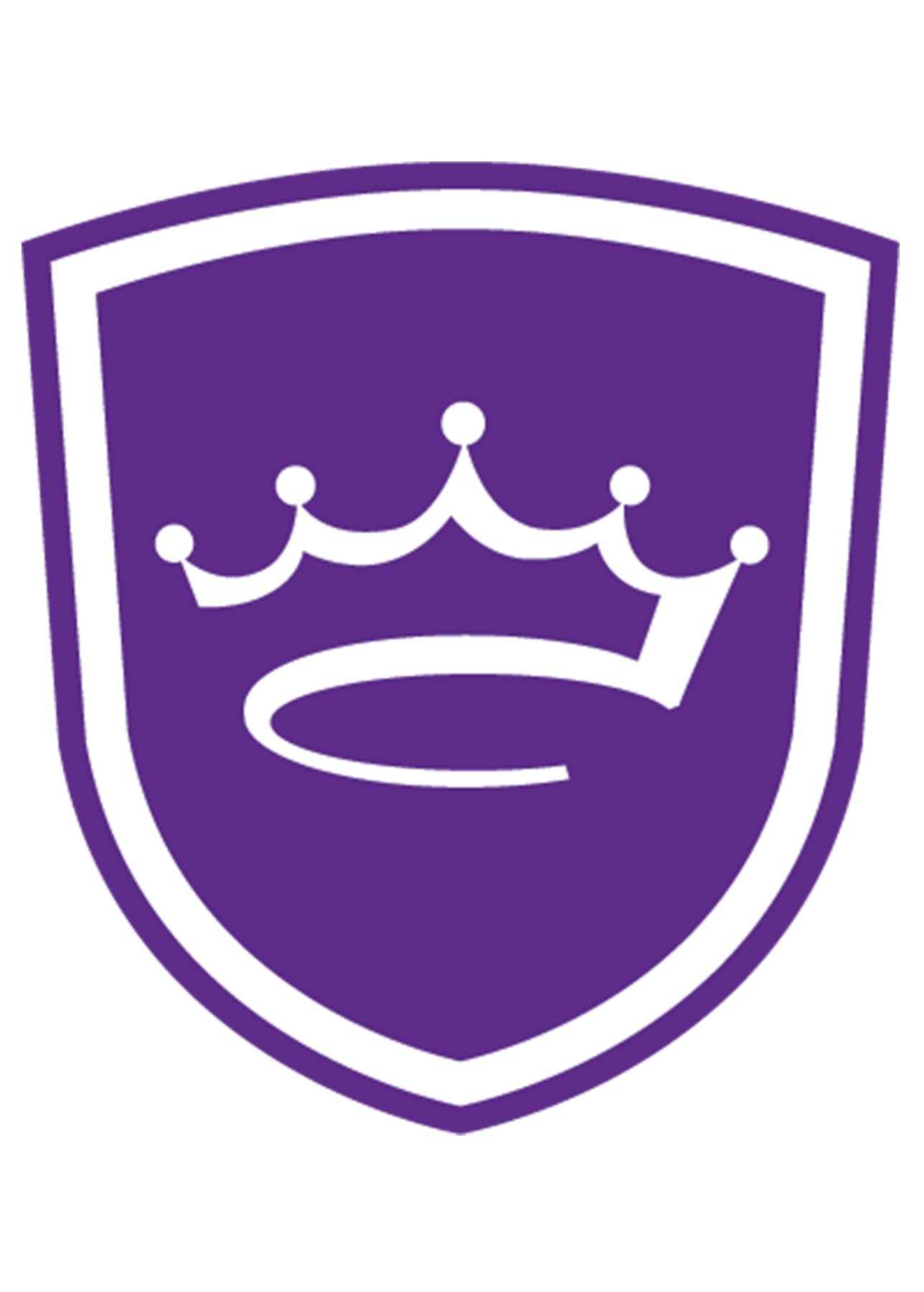
Crown College
Intelligent Score: 98.39In-state: $27,270
Out-of-state: $27,270
In-state: $9,990
Out-of-state: $9,990
SAT: 960-1150
ACT: 18-23
$610
Online
Council for Accreditation of Counseling and Related Educational Programs
60

USC Rossier School of Education
Intelligent Score: 97.06In-state: $59,260
Out-of-state: $59,260
In-state: $47,880
Out-of-state: $47,880
SAT: 1340-1530
ACT: 30-34
$2,244
Online
California Commission on Teacher Credentialing
49
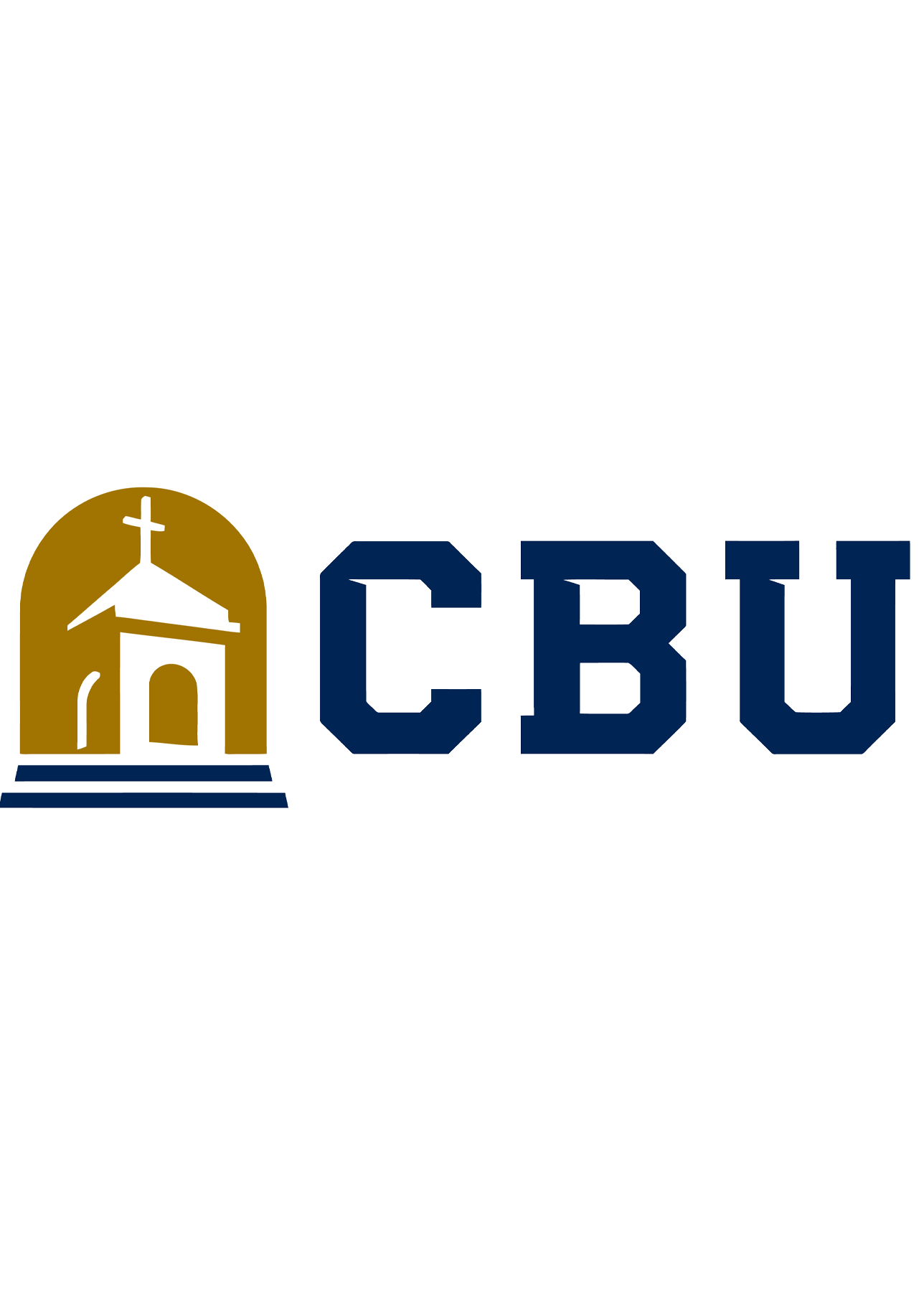
California Baptist University
Intelligent Score: 95.1In-state: $33,930
Out-of-state: $33,930
In-state: $13,410
Out-of-state: $13,410
SAT: 960-1150
ACT: 18-25
$800
Online
Western Association of Schools and Colleges Senior College and University Commission
68

Webster University
Intelligent Score: 95.03In-state: $28,500
Out-of-state: $28,500
In-state: $13,500
Out-of-state: $13,500
SAT: 1078-1260
ACT: 20-27
$730
Online, On-Campus
Council for Accreditation of Counseling and Related Educational Programs
60
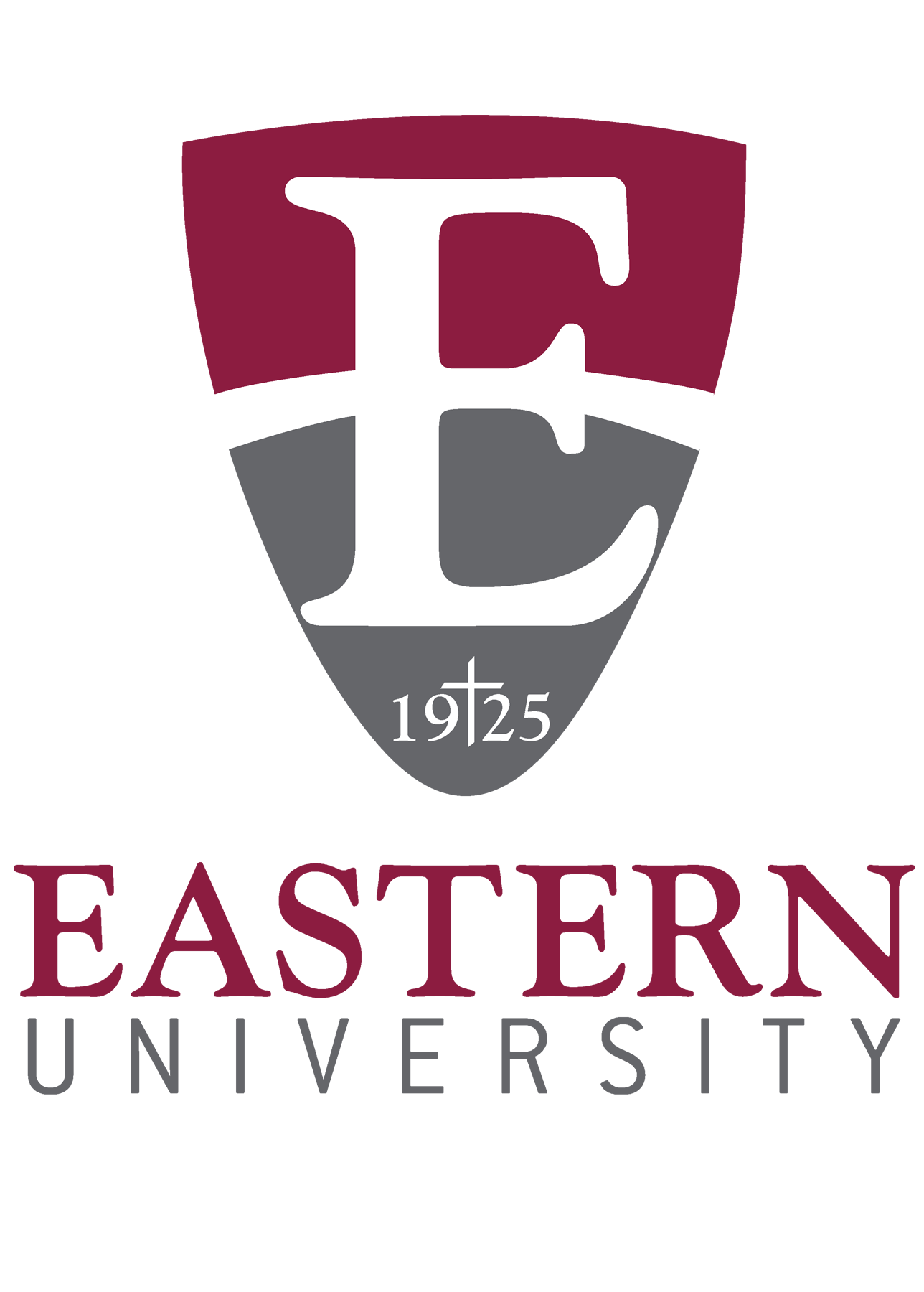
Eastern University
Intelligent Score: 94.91In-state: $34,136
Out-of-state: $34,136
In-state: $13,374
Out-of-state: $13,374
SAT: 1010-1190
ACT: 20-24
$790
Online
Master’s in Psychology and Counseling Accreditation Council
60

University of the Southwest
Intelligent Score: 93.14In-state: $16,000
Out-of-state: $16,000
In-state: $22,500
Out-of-state: $22,500
SAT: N/A
ACT: N/A
$625
Online
Council for Accreditation of Counseling and Related Educational Programs
42

Waynesburg University
Intelligent Score: 91.41In-state: $25,430
Out-of-state: $25,430
In-state: $16,320
Out-of-state: $16,320
SAT: 980-1170
ACT: 19-24
$715
Online
Council for Accreditation of Counseling and Related Educational Programs
60

North Carolina State University
Intelligent Score: 90.36In-state: $6,535
Out-of-state: $26,654
In-state: $9,095
Out-of-state: $9,095
SAT: 1230-1410
ACT: 27-32
Resident: $525
Non-Resident: $1,635
Online
Council for Accreditation of Counseling and Related Educational Programs
60

San Diego State University
Intelligent Score: 89.76In-state: $5,742
Out-of-state: $17,622
In-state: $7,176
Out-of-state: $7,176
SAT: 1090-1300
ACT: 22-29
Resident: $598
Non-Resident: $994
Online, Hybrid
Commission on Accreditation for Marriage and Family Therapy Education
60

Lehigh University
Intelligent Score: 88.1In-state: $54,790
Out-of-state: $54,790
In-state: $27,000
Out-of-state: $27,000
SAT: 1260-1433
ACT: 29-33
$610
Online, On-Campus
Master’s in Psychology and Counseling Accreditation Council
48

Touro University Worldwide
Intelligent Score: 86.4In-state: $14,400
Out-of-state: $14,400
In-state: $9,000
Out-of-state: $9,000
SAT: N/A
ACT: N/A
$400
Online
Western Association of Schools and Colleges Senior College and University Commission
60
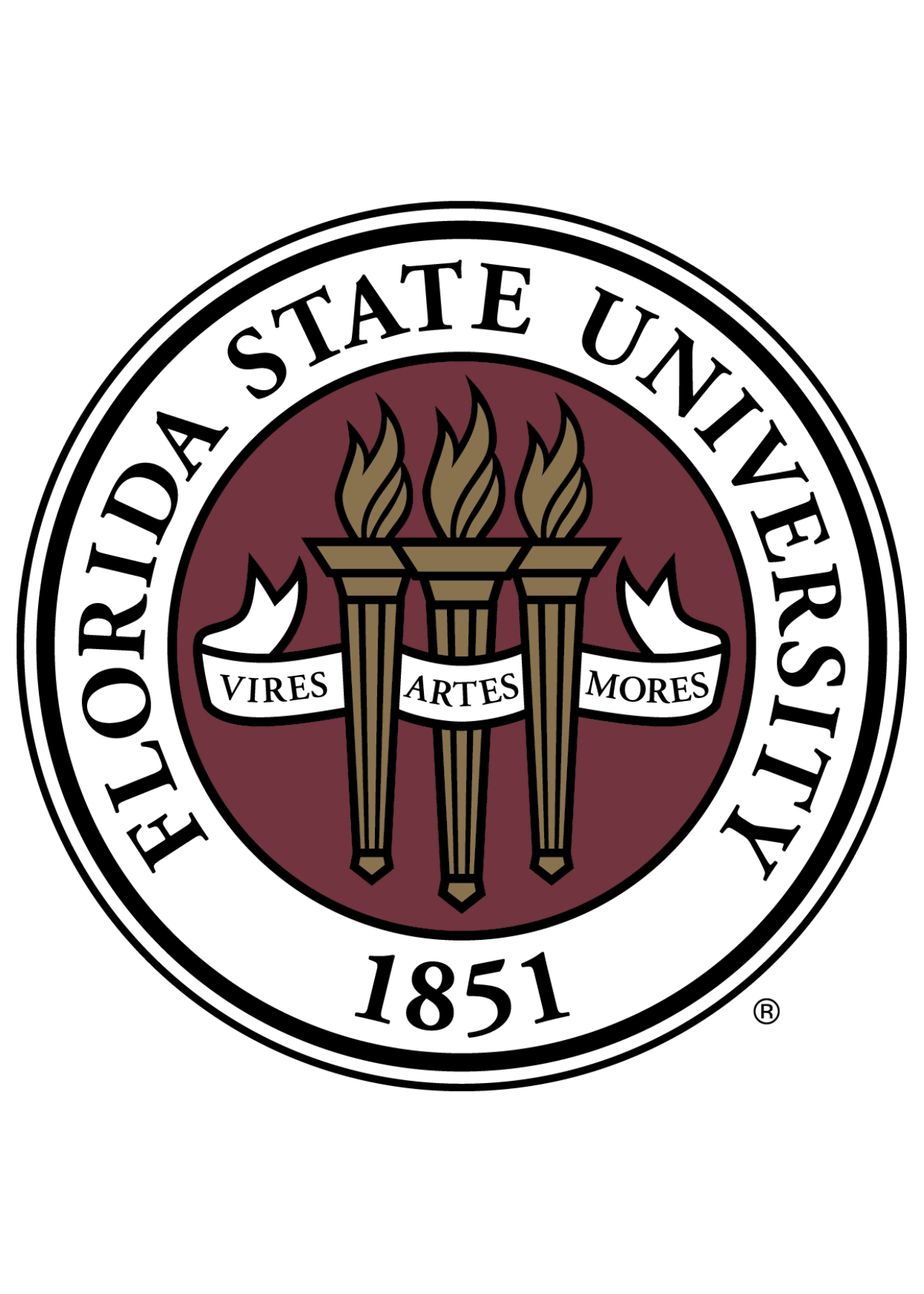
Florida State University
Intelligent Score: 86.39In-state: $4,640
Out-of-state: $19,084
In-state: $9,684
Out-of-state: $9,684
SAT: 1220-1350
ACT: 27-31
In-State: $444
Out-of-State: $1,075
Online
Southern Association of Colleges and Schools Commission on Colleges
60

LeTourneau University
Intelligent Score: 85.98In-state: $31,740
Out-of-state: $31,740
In-state: $18,630
Out-of-state: $18,630
SAT: 1110-1330
ACT: 22-29
$625
Online
Southern Association of Colleges and Schools Commission on Colleges
66
How to Choose the Online Master’s in Counseling Degree Program That’s Right for You
Step 1: Choose your area of study
Before beginning your search for an online master’s in counseling, reflect on your educational and career goals. Consider whether you want a general counseling degree or if you want to focus on a particular sub-field of counseling. Consider where you plan on working to find a program that meets the state’s requirements for professional licensure. Choose whether you want an MA, MS, or M.Ed degree in counseling.
It’s also helpful to determine your needs in terms of course delivery format and scheduling. Decide if you’ll attend school full-time or part-time, as not all programs offer a part-time enrollment option. For online courses, students typically choose between synchronous or asynchronous programs. In a synchronous program, students attend virtual classes at predetermined times, similar to a traditional learning experience. This format offers more opportunities for interaction with classmates and faculty but requires that students be available at specific times. Asynchronous programs are more flexible, as there are no class meetings, and students can complete their lessons and assignments on their own schedule.
Step 2: Research schools and programs
There are many ways to gather information about online master’s in counseling programs. The best place to start is usually the school’s website, which publishes information about curriculum, clinical requirements, faculty, and more. Students can also directly contact program representatives and admissions counselors for more information. Many schools host virtual open houses or information sessions for online students, which can give prospective students insights into the program’s culture. Social media is also a valuable research tool, as many schools and programs have accounts prospective students can follow.
One of the key pieces of information students should gather about schools and programs they’re considering is accreditation status. “Verifying the college’s accreditation ensures that the institution has the U.S. Department of Education’s seal of approval,” Villagomez says. “Attending a non-accredited college can negatively impact future post-graduate opportunities such as employment, masters and doctorate programs.” This is particularly important for counseling students, who must attend a CACREP-accredited program to qualify for licensure.
“Students can verify the accreditation status of a school or program using the U.S. Department of Education’s online accreditation database,” Villagomez says. “With institutional accreditations, colleges are evaluated as a whole and must pass several standards to receive a regional or national accreditation. Programmatic accreditations evaluate the quality and legitimacy of the specific degree programs offered at institutions.”
Other information students can gather during the research process includes:
- Who are the faculty, and what are their qualifications?
- What clinical experiences does the program require? Are students assigned clinical placements, or must they find their own?
- How do online students interact with faculty and classmates?
- What support services do online students have access to, including tutoring, tech support, career advising, and counseling?
- What financial aid resources are available, including scholarships and grants?
Step 3: Prepare for applications and tests
“After conducting research on the degree programs and schools that are the best fit for them, students should have a strong sense of the admission requirements for those schools,” Villagomez says. “Highly selective schools can often require well-crafted essays, standardized exams, recommendation letters, and even interviews. With all these requirements, it’s important for students to stay organized with a comprehensive and detailed checklist to track their progress, submit all required materials, and meet deadlines.”
In general, applicants to an online master’s in counseling can expect to submit the following:
- Application and fees
- Official transcripts from all undergraduate schools attended
- Letters of recommendation from faculty, employers, or colleagues
- Personal statement or essay
- Resume or CV
Some programs may require a bachelor’s degree or undergraduate coursework in counseling or a related field. Others may want students to show professional experience. Students should also check whether schools require GRE scores or if submitting the standardized test is optional.
Step 4: Select your program
While gathering information on various programs, compare them based on the criteria that are most important to you. Determining your priorities helps you eliminate programs that don’t meet your needs and narrow your list to the ones you’ll apply to.
There’s no magic number of applications to submit. Some students find that only one or two programs meet their needs, while others submit multiple applications to increase their odds of acceptance. One thing to keep in mind is that most schools charge application fees, so budget accordingly if you’re applying to multiple schools.
Step 5: Determine how you’ll pay for your degree
During the research process, students should also clarify how much a program costs and what financial aid options the school offers.
“Available financial aid varies greatly across institutions, but the key types include grants, scholarships, fellowships, work-study, and loans,” Villagomez says. Students should consult with a financial aid counselor to assess their eligibility for different types of available financial aid.
Students should inquire about need-based and merit-based institutional aid, such as scholarships and grants. These financial resources don’t need to be repaid and can significantly decrease the cost of a program.
In order to access most need-based aid, students must complete the Free Application for Federal Student Aid (FAFSA). Schools use the information from this application to determine a student’s eligibility for need-based aid, federal student loans, and work-study jobs. Although private education loans are available, federal student loans have more favorable terms, interest rates, and repayment options.
Other ways of paying for an online master’s in counseling include employer tuition assistance benefits, military discounts, GI Bill benefits, and payment plans.
Still Looking for the Right Fit? Discover Similar Programs
Several other degrees can prepare students to provide support and care for individuals and groups facing mental or behavioral health challenges. Other options include:
What Can I Do With an Online Master’s in Counseling Programs?
A master’s degree in counseling prepares students for a variety of career paths in the mental health care field.
In most states, students must have a master’s degree in order to qualify for professional licensure, which is required for many counseling jobs. Counselors must be licensed in order to provide clinical services to individuals and groups and operate their own private practices.
Some counselors work with a variety of client populations, while others focus on specific groups, such as children and adolescents, adults, families, or individuals coping with specific issues, such as substance abuse or trauma. Counselors are employed in a wide range of settings, including medical and psychiatric hospitals, inpatient and outpatient treatment facilities, schools, correctional facilities, private practices, and more. Increasingly, counselors are able to work remotely thanks to telehealth platforms that allow practitioners to see clients virtually.
A master’s degree is the standard terminal degree for mental health counselors, although some professionals may choose to pursue a doctorate in psychology to become a licensed psychologist or instructor at the post-secondary level.
Career outlook
- Substance abuse counselor — Working in hospitals, in-patient rehabilitation centers, and outpatient recovery programs, these counselors provide support to those dealing with the misuse of drugs and alcohol.
- Median annual salary: $53,710
- Projected employment growth (through 2032): 18%
- New jobs projected: 42,000 per year
- School or career counselor — School counselors work in educational settings to help students discover their aptitudes and plan for life after graduation, including applying to college. Career counselors can work in college settings or for other agencies and will help clients set and achieve short- or long-term goals for their careers.
- Median annual salary: $61,710
- Projected employment growth (through 2032): 5%
- New jobs projected: 26,600 per year
- Couples and family counselors — Some counselors focus on working with specific populations, such as families or intimate partners, who may require specific interventions to address group dynamics.
- Median annual salary: $58,510
- Projected employment growth (through 2032): 15%
- New jobs projected: 5,900 per year
Online College/Degree Scholarship Database
Intelligent Scholarship Finder Tool
"A Helping Hand" Scholarship
Award Amount: $500
Due Date: January 31, 2025
"Follow Your Own Path" Essay Scholarship
Award Amount: $500
Due Date: January 31, 2025
"Tuition Solution" Scholarship for STEM Students
Award Amount: $500
Due Date: January 31, 2025
$25k "Be Bold" No-Essay Scholarship
Award Amount: $25,000
Due Date: Closed for 2024
(ISC) Graduate Cybersecurity Scholarship
Award Amount: $5,000
Due Date: Closed for 2024
(ISC) Women in Information Security Scholarship
Award Amount: $5,000
Due Date: Closed for 2024
A.C. "Kate" & Leo Joseph Merlone St. Dominic Catholic Church of Saginaw Member Scholarship
Award Amount: Varies
Due Date: Closed for 2024
A.C. "Kate" & Leo Joseph Merlone Teaching Scholarship
Award Amount: Varies
Due Date: Closed for 2024
a/e ProNet David W. Lakamp Scholarship
Award Amount: $5,000
Due Date: Closed for 2024
AAAE Native American Scholarship
Award Amount: $1,500
Due Date: March 15, 2025
Frequently Asked Questions About Online Master’s in Counseling Programs
Should I get a master's in counseling degree in person or online?
The decision to earn a degree in-person or online is personal, and each has advantages and disadvantages.
“Online programs generally offer a combination of asynchronous and synchronous modalities, so expectations and pacing can vary greatly across courses,” Villagomez says. “With asynchronous courses, interactions with professors and classmates can be limited and may require more effort to stay connected. Meanwhile, synchronous courses can facilitate engagement more easily. Regardless of modality, all online degree programs require a high level of self-motivation, effective time management, and structured independent study.”
An in-person program might be a better option for students who learn best in group settings through discussions and hands-on activities, although students will have to find a program that fits into their schedule.
Master’s in counseling students should be aware that even if they can complete all their coursework online, they will likely have to complete an on-site clinical internship as part of their program. Students should speak with a program representative about these requirements and how online learners fulfill them.
How do I apply for an online master's in counseling degree program?
Since each school sets its own application procedures and policies, speaking to an admissions counselor for specific application instructions is always best.
Students will most likely apply for an online master’s in counseling program by submitting an application and other required materials online. Applications for master’s programs typically include official undergraduate transcripts, letters of recommendation, a resume or CV, and a personal statement. Some programs may also include an interview component.
There may also be eligibility requirements, such as a specific undergraduate degree, minimum GPA, prerequisite coursework, or professional experience. Confirm that you meet a program’s eligibility requirements before starting an application.
How much does an online master's in counseling degree cost?
According to the Education Data Initiative, the average cost of a master’s degree is $59,684. However, there are a variety of factors that influence how much students will pay for an online master’s in counseling. For the most accurate cost information, speak to a financial aid counselor, who can provide information about tuition, fees, and financial aid.
A key factor is whether a school is public or private. Tuition at public universities tends to be less than at private institutions, although public schools may charge different rates for in-state and out-of-state students. Additional costs for an online master’s degree include school fees for technology, support services, and online resources; personal technology like computers and internet; and books and materials.
Students can also consider how much they’ll save by attending school online, which eliminates room and board fees and transportation costs and may allow students to work and have a steady income.
How long does it take to complete an online master's in counseling degree?
Full-time students can typically complete an online master’s in counseling degree in two years, while part-time students may take three to four years for a 60-credit program.
Students who have previously earned credits towards a graduate degree may be able to apply them to their online master’s in counseling, decreasing the time it takes to finish the degree. Some schools may offer accelerated programs that compress coursework into a shortened time frame. While these programs can help students earn their degrees quicker, they are fast-paced and academically rigorous, which may not fit all learners well.
Is an online master's in counseling degree worth it?
Becoming a licensed counselor can be a rewarding career path for individuals who want to help vulnerable populations, including children, seniors, and individuals with mental, behavioral, and developmental challenges. Demand for trained counselors and mental health professionals is currently high and is expected to remain so throughout the next decade.
Despite being a masters-level entry field, an advanced degree does not necessarily translate to higher pay for counselors. The median annual salary for substance abuse, behavioral disorder, and mental health counselors in 2022 was $53,710, with the lowest 10 percent earning less than $36,700 annually. While determining financial return on investment is important when choosing a master’s degree, it’s also key to consider whether the career will fulfill your personal interests and goals.
